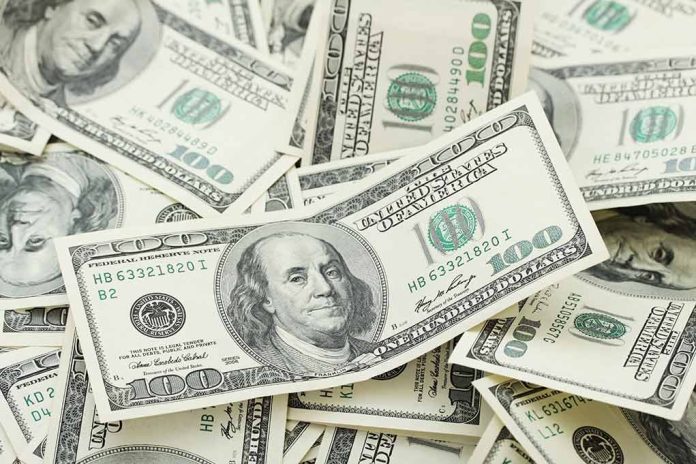
Albania’s former president Ilir Meta faces a staggering array of corruption charges including money laundering, tax evasion, and hidden assets, exposing the deep-rooted corruption that has plagued the country’s political elite for decades.
Key Takeaways
- Former Albanian President Ilir Meta has been formally charged with corruption, money laundering, tax evasion, and hiding property in a 192-page report by anti-corruption prosecutors.
- Meta is accused of failing to account for $460,000 used for lobbying in the U.S. and abusing his authority as minister of economy for personal gain.
- Meta claims the charges are politically motivated, calling the Special Structure Against Corruption and Organized Crime (SPAK) an “anti-opposition task force” controlled by Prime Minister Edi Rama.
- Meta’s former spouse, Monika Kryemadhi, also faces similar accusations, with both alleged to have purchased property with illicit funds.
- The case represents Albania’s intensified efforts to combat high-level corruption as the country negotiates EU membership.
A Political Dynasty Under Scrutiny
Ilir Meta, who has held various powerful positions in Albania including president, prime minister, and foreign minister, was arrested in October as part of a sweeping anti-corruption investigation. The charges against him detail a pattern of alleged financial misconduct during his tenure in government, particularly when he served as minister of economy, trade, and energy.
Prosecutors from the Special Structure Against Corruption and Organized Crime (SPAK) have compiled a damning 192-page report outlining how Meta allegedly abused his authority for personal enrichment and engaged in systematic efforts to conceal his illicit gains from public scrutiny.
The investigation into Meta represents a significant development in Albania’s battle against corruption, which has long hampered the country’s economic growth and democratic institutions. As founder of the Freedom Party, Meta has been a fixture in Albanian politics for decades, making these charges particularly consequential for the nation’s political landscape. The accusations extend beyond Meta himself to include his former spouse, Monika Kryemadhi, who faces similar charges related to corruption and financial misconduct, suggesting a family enterprise built on exploiting political power for personal gain.
Allegations of Political Persecution
Meta has vehemently denied all charges, framing them as politically motivated attacks orchestrated by his rival, Prime Minister Edi Rama, whose Socialist Party recently secured a substantial victory in the May 11 parliamentary election. Meta has specifically characterized SPAK as an “anti-opposition task force,” implying that the judicial body is merely a tool being wielded against political opponents rather than an independent institution pursuing justice. This narrative of political persecution is common among disgraced officials throughout Eastern Europe when faced with corruption charges, often serving as a deflection from addressing the substantive allegations.
“I can hardly wait for the start of the trial which will be public and will be shown to the world,” said Ilir Meta, former Albanian President.
Despite Meta’s protestations, the charges against him appear substantial. Prosecutors allege that he failed to account for approximately $460,000 used for lobbying activities in the United States, suggesting an attempt to influence American policy toward Albania through undisclosed channels. Additionally, both Meta and Kryemadhi are accused of purchasing property with funds obtained through illicit means and failing to declare significant health expenses, pointing to a pattern of financial deception designed to hide their true wealth from tax authorities and the public.
Albania’s Broader Anti-Corruption Campaign
The charges against Meta come amidst Albania’s ongoing efforts to combat corruption as part of its bid for European Union membership. Corruption has been a persistent obstacle to Albania’s development, eroding public trust in government institutions and deterring foreign investment. The country’s judicial institutions, supported by both the EU and the United States, have been investigating numerous former officials for corruption, signaling a potential turning point in Albania’s approach to accountability among its political class. This represents a positive step toward establishing the rule of law that conservatives have long advocated for in developing democracies.
Meta has characterized SPAK as an “anti-opposition task force,” said Ilir Meta, former Albanian President.
Meta is not the only former high-ranking official facing scrutiny. Sali Berisha, another former prime minister and president, is also facing corruption charges, suggesting a broader effort to hold Albania’s political elite accountable regardless of party affiliation. Two additional individuals have been implicated in the case against Meta for money laundering and corruption, indicating that prosecutors are casting a wide net to capture not just the principal actors but also their enablers and associates. This comprehensive approach is necessary to dismantle the networks of corruption that have entrenched themselves in Albania’s political system over decades.









